no lack of bees here.
pondwelr
15 years ago
Related Stories
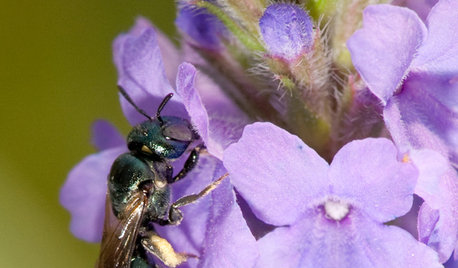
GARDENING GUIDESSmall Carpenter Bees Are Looking for a Home in Your Plant Stems
Provide flowers and nesting sites in your garden for this beautiful, tiny, metallic blue wild bee — your plants will thank you
Full Story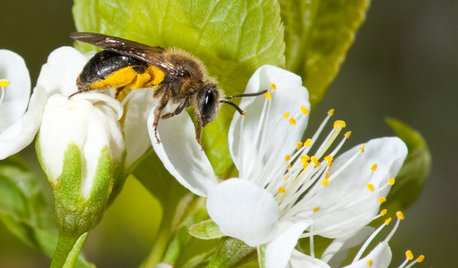
GARDENING GUIDESInvite Mining Bees to Your Garden by Planting Their Favorite Plants
Look for mining bees (Andrena) pollinating woodland wildflowers in U.S. gardens this spring
Full Story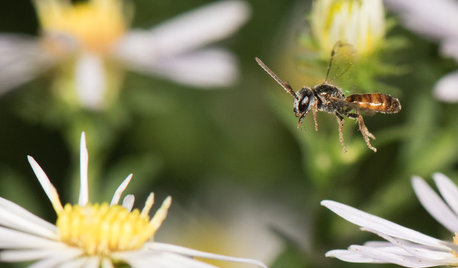
GARDENING GUIDESThis Tiny, Gentle Bee Keeps Busy
Look closely for small sweat bees visiting your flowers throughout the growing season
Full Story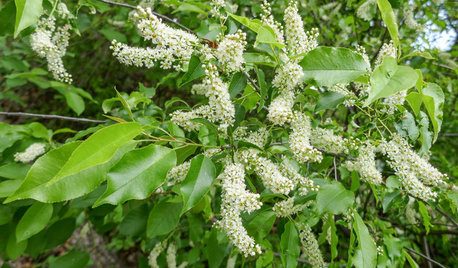
GARDENING GUIDESPlant Black Cherry Trees for the Birds and Bees
Plant Prunus serotina in the Central and Eastern U.S. for spring flowers, interesting bark and beautiful fall color
Full Story
PETSHere’s How to Show Your Pet Even More Love
February 20 is Love Your Pet Day. Find all the ideas and inspiration you need to celebrate right here
Full Story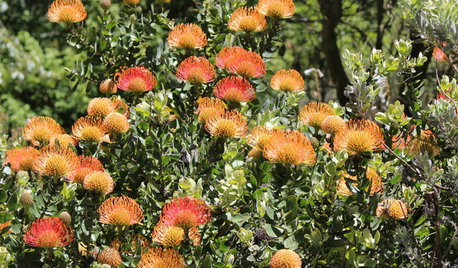
GARDENING GUIDESKeep Your Cool in the Garden — Here’s What to Do in August
Don’t let summer’s heat go to your head. These U.S. gardening guides will help you make sensible choices for all of your plantings
Full Story
KITCHEN CABINETSChoosing New Cabinets? Here’s What to Know Before You Shop
Get the scoop on kitchen and bathroom cabinet materials and construction methods to understand your options
Full Story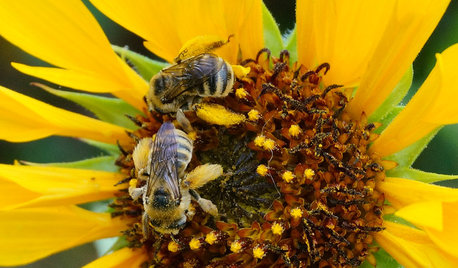
EARTH DAY12 Entertaining ‘Bee-haviors’ of Native Bees
The parade of pollinator antics is another reason to create a garden that nurtures native bees
Full Story
DECORATING GUIDESHoneycomb Shapes Are the Bee’s Knees
The hexagon is everywhere in nature — in honeycombs, tortoiseshells, snowflakes. Why not replicate it in home design?
Full Story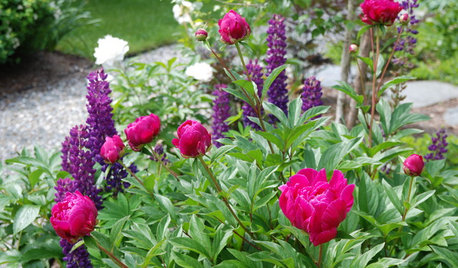
REGIONAL GARDEN GUIDESDelight in Summer’s Garden Glories — Here’s What to Do in June
Wherever you live in the United States, these guides can help you make the most of your summer garden
Full StorySponsored
Leading Interior Designers in Columbus, Ohio & Ponte Vedra, Florida






justaguy2
Bob_Zn5
Related Professionals
Ashburn Landscape Architects & Landscape Designers · Wareham Landscape Architects & Landscape Designers · Roxbury Crossing Landscape Architects & Landscape Designers · Arlington Landscape Contractors · Clark Landscape Contractors · Fair Lawn Landscape Contractors · Forest Hills Landscape Contractors · Hannibal Landscape Contractors · Lynwood Landscape Contractors · Mendota Heights Landscape Contractors · Norwalk Landscape Contractors · Quartz Hill Landscape Contractors · Carol Stream Carpenters · Maple Valley Carpenters · Woodstock Carpentersjustaguy2
tsugajunkie z5 SE WI ♱
pondwelrOriginal Author
Bob_Zn5
luvtosharedivs